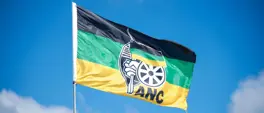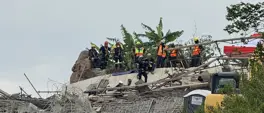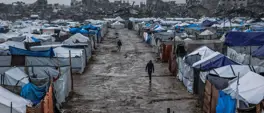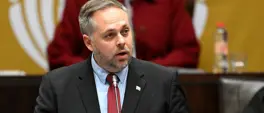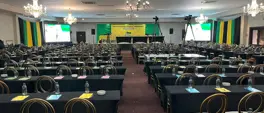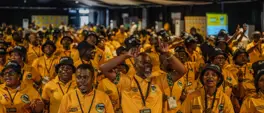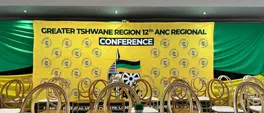Students call for Nobel winner Yunus to lead Bangladesh after Hasina flees
AFP
6 August 2024 | 10:50Sheikh Hasina, 76, had been in power since 2009 but was accused of rigging elections in January and then watched millions of people take to the streets over the past month demanding she quit.
DHAKA - Student leaders in Bangladesh demanded on Tuesday that Nobel winner Muhammad Yunus lead a caretaker government, a day after the military took control as mass demonstrations forced longtime ruler Sheikh Hasina to flee the country.
Hasina, 76, had been in power since 2009 but was accused of rigging elections in January and then watched millions of people take to the streets over the past month demanding she quit.
Hundreds of people were killed as security forces sought to quell the unrest but the protests grew and Hasina finally fled aboard a helicopter on Monday after the military turned against her.
Army chief General Waker-Uz-Zaman announced on state television on Monday afternoon that Hasina had resigned and the military would form an interim government, acknowledging that "it is time to stop the violence".
The president dissolved parliament on Tuesday, a key demand of the student leaders and the major opposition Bangladesh National Party (BNP).
Waker was expected to meet student leaders on Tuesday to hear their demand for the microfinance pioneer Yunus, 84, to lead the government.
Ex-prime minister and BNP chairperson Khaleda Zia was also released from years of house arrest, a presidential statement and her party said.
Zia, 78, who is in poor health, was jailed by her arch-rival Hasina for graft in 2018.
'IN DR YUNUS WE TRUST'
The students also want the dissolution of parliament in a call echoed by the BNP, which has demanded elections within three months.
"In Dr. Yunus, we trust," Asif Mahmud, a key leader of the Students Against Discrimination (SAD) group, wrote on Facebook.
Yunus has not commented on the call for him to lead but he said in an interview with India's The Print Bangladesh had been "an occupied country" under Hasina.
"Today all the people of Bangladesh feel liberated," it quoted Yunus as saying.
Streets in Dhaka were largely peaceful on Tuesday, with traffic resuming and shops opening, but government offices were mainly closed a day after chaotic violence in which at least 113 people were killed.
Millions of Bangladeshis flooded the streets of Dhaka to celebrate after Waker's announcement on Monday, although jubilant crowds also stormed and looted Hasina's official residence.
"We have been freed from a dictatorship", said Sazid Ahnaf, 21, comparing the events to the independence war that split the nation from Pakistan more than five decades ago.
DEADLIEST DAY
There were also scenes of chaos and anger, with police reporting mobs had launched revenge attacks on Hasina's allies and their own officers.
Monday was the deadliest day since protests began in early July. At least 413 people have been killed overall, according to an AFP tally based on police, government officials and doctors at hospitals.
Protesters stormed parliament and torched TV stations. Others smashed statues of Hasina's father, Sheikh Mujibur Rahman, Bangladesh's independence hero.
A museum dedicated to the former leader was also set on fire in destruction barely thinkable just hours before when the autocratic Hasina still had the loyalty of the security forces.
Some businesses and homes owned by Hindus -- a group seen by some in the Muslim-majority nation as close to Hasina -- were also attacked, witnesses said.
Key police unions said their members had declared a strike "until the security of every member of the police is secured", offering their "apology" for police actions against the protesters.
POLITICAL PROISONERS FREED
The unrest began last month with protests against civil service job quotas and escalated into wider calls for Hasina to stand down.
Her government was accused by rights groups of misusing state institutions to entrench its hold on power and stamp out dissent, including through the extrajudicial killing of opposition activists.
Mothers of some of the hundreds of political prisoners secretly jailed under Hasina's rule waited outside a military intelligence building in Dhaka on Tuesday.
"We need answers," said Sanjida Islam Tulee, a coordinator of Mayer Daak -- "The Call of the Mothers" -- a group campaigning for the release of people detained under Hasina.
Hasina's fate is also uncertain.
She fled by helicopter to India, New Delhi's foreign minister S. Jaishankar said Tuesday, adding he was "deeply concerned till law and order is visibly restored" in Bangladesh.
A source has said she wants to go on to London but calls by the British government for a UN-led investigation into the "unprecedented" violence put that in doubt.
Bangladesh has a long history of coups.
The military declared an emergency in January 2007 after widespread political unrest and installed a military-backed caretaker government for two years.
Thomas Kean from the International Crisis Group said the new authorities faced a daunting challenge.
"The interim government that will now assume power... needs to embark on the long task of rebuilding democracy in Bangladesh, which has been so badly eroded in recent years," Kean said.
Get the whole picture 💡
Take a look at the topic timeline for all related articles.



